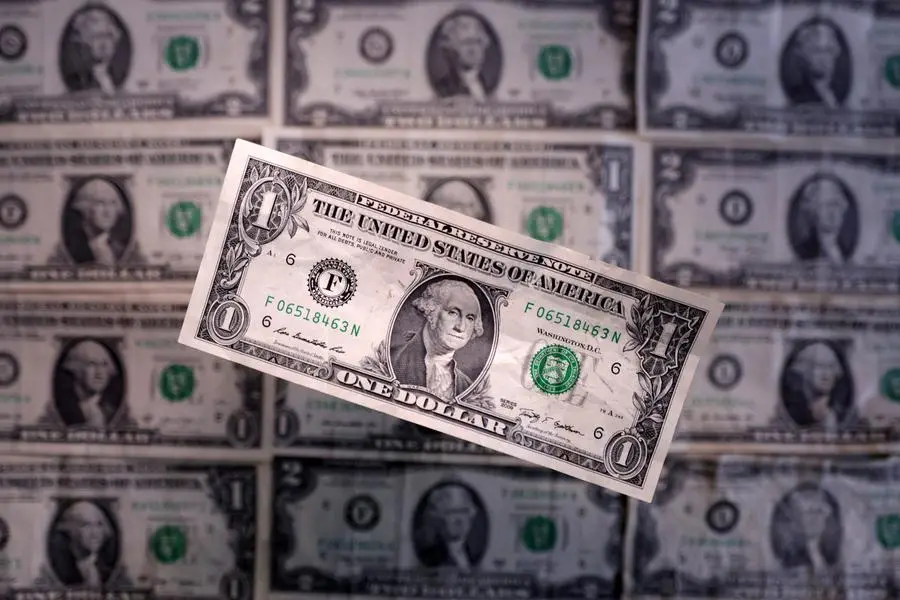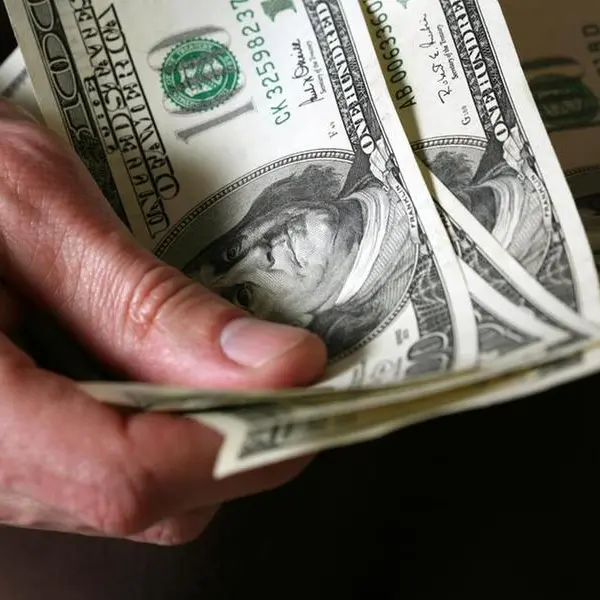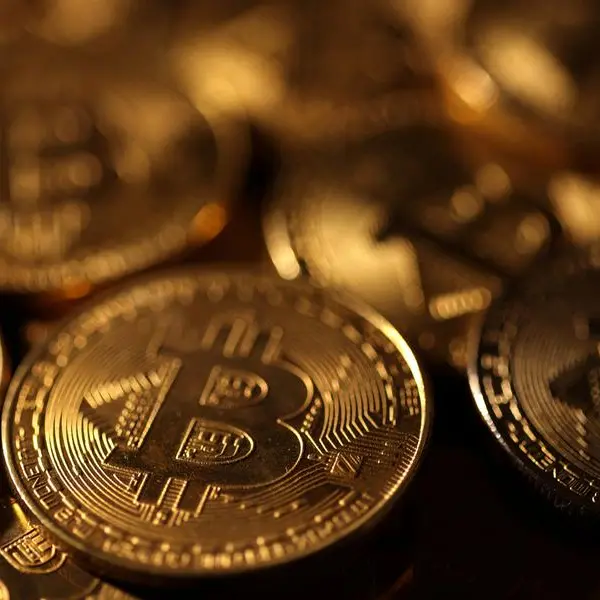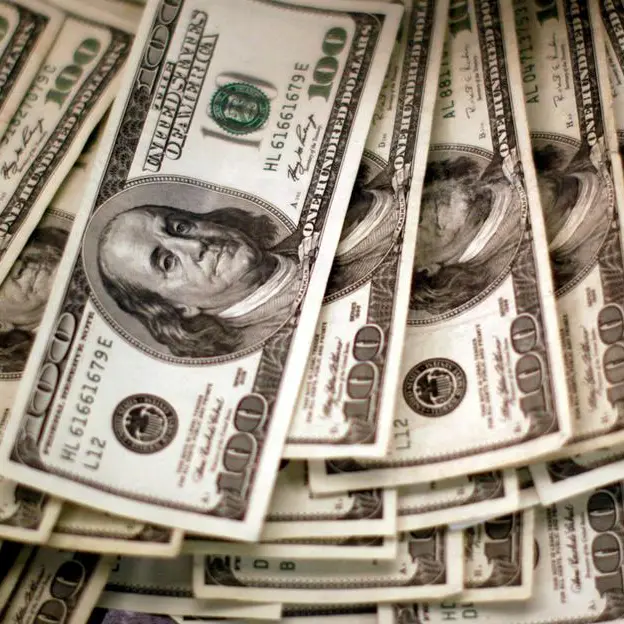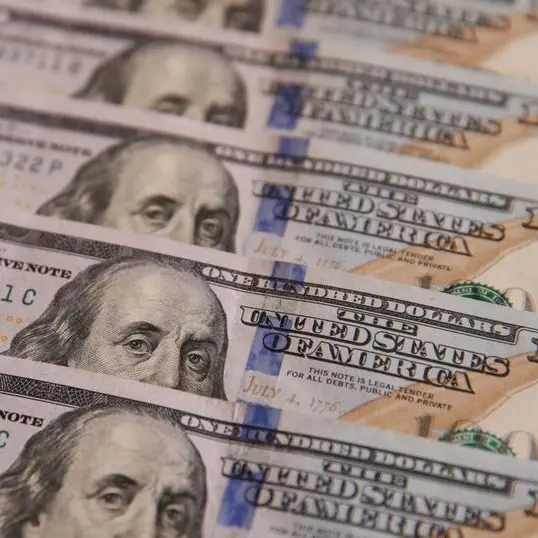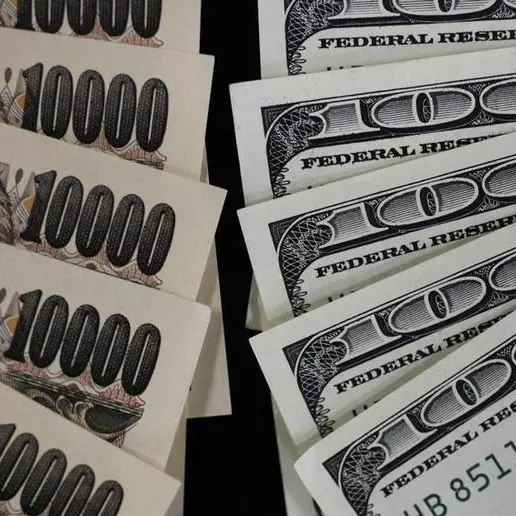PHOTO
The dollar drifted just below a three-week high versus major peers on Monday as traders sought clarity on U.S. President Donald Trump's next round of tariffs.
U.S. President Donald Trump's administration is likely to exclude a set of sector-specific tariffs while applying reciprocal levies on April 2, Bloomberg News and the Wall Street Journal reported, citing officials.
The U.S. dollar index, which measures the currency against a basket of six counterparts, was marginally lower at 103.94 as of 0959 GMT, after touching 104.22 on Friday for the first time since March 7.
"I would imagine that markets will remain anxious and sensitive to any news that comes out regarding Trump tariffs ahead of that April 2nd announcement, so I expect some market jitters certainly this week," said Jane Foley, head of FX strategy at Rabobank.
The dollar has been under pressure for most of this year as the market's assumptions that Trump would quickly usher in pro-growth policies transformed into worries that the president's aggressive and erratic trade policies could trigger a recession.
The next round of tariffs is due on April 2, when the White House will announce reciprocal levies on many countries.
The euro rose 0.25% to $1.0836, recouping some of its losses of last week and adding to its 4.4% gain on the dollar so far this month.
Euro zone business activity grew at its fastest pace in seven months in March, supported by an easing in the long-running manufacturing downturn despite slower growth in services, a survey showed.
"Looking at the PMI data that we've seen this morning, a little bit mixed and so that's not really going to alter the overall tone of the market still concentrating on those tariff announcements," Foley said.
The shared currency had been buoyed to the highest since early October at $1.0955 last week on optimism over Germany's move to loosen fiscal constraints in order to boost military and infrastructure spending.
However, the currency slipped back in recent days in the lead up to the actual ratification of the change, with Germany's upper house of parliament passing the bill on the so-called debt brake on Friday.
The Japanese yen edged lower against the greenback, pressured by a rise in U.S. Treasury yields.
Foley also cited the weakness to the country's finance minister's warning about deflation in an interview with the Financial Times, which has created some concern about the pace of interest rate hikes from the Bank of Japan.
The dollar gained 0.16% to 149.545 yen. The currency pair tends to track changes in bond yields, and 10-year Treasury yields added 2.7 basis points to 4.2807% on Monday.
Sterling gained 0.3% at $1.2956. UK finance minister Rachel Reeves said on Sunday she would stick to fiscal rules despite global turmoil, raising the prospect of thousands of public sector job cuts in this week's budget update which is likely to include further savings.
The Turkish lira was broadly steady at around 37.91 per dollar, as a Turkish court on Sunday jailed Istanbul Mayor Ekrem Imamoglu, President Tayyip Erdogan's main political rival, pending graft charges, which Imamoglu denies.
The incarceration comes after the main opposition party, European leaders and hundreds of thousands of protesters criticised the actions against him as politicised and undemocratic.
The lira briefly lurched to a record low of 42 per dollar last week, when Turkey's central bank said it had suspended one-week repo auctions and hiked its overnight lending rate to 46%, a move that economists say amounts to a tighter policy stance.
(Reporting by Kevin Buckland in Tokyo and Yadarisa Shabong in Bengaluru; Editing by Stephen Coates, Edwina Gibbs and Hugh Lawson)
